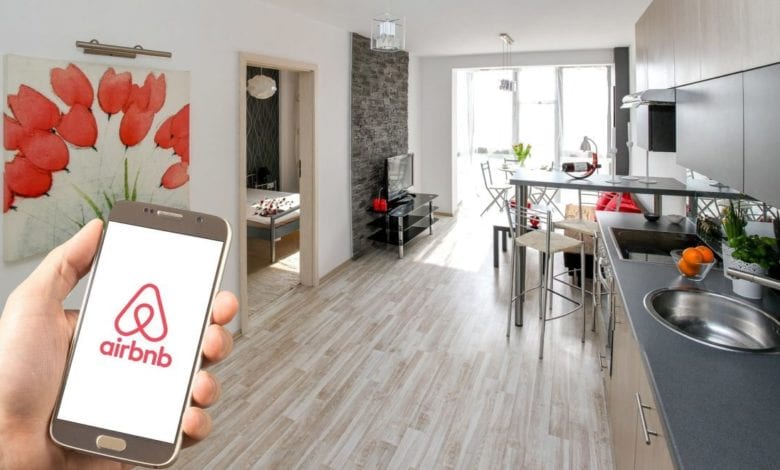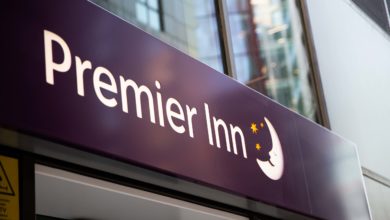New short-term lets planning rules: a bridge between local communities and economic growth?
The Government has recently announced the introduction of new planning rules for all future short-term accommodations

Last week, the Department for Levelling Up, Housing and Communities (DLUHC) announced that starting from next summer it is introducing a registration scheme for Airbnb-style short-term lets in England. The announcement follows the campaigning of the hospitality and rental sectors who have been very vocal with their concerns regarding the growing number of short-term accommodations and its impacts on local communities.
So what exactly are the new planning rules?
According to the government, “councils will be given greater power to control short-term lets by making them subject to the planning process”. This will be possible through the introduction of a new “use class” for future short-term lets.
In addition, a new mandatory national register will be introduced to give local authorities an idea of how many short-term accommodations are operating in their area.
Secretary of State for Levelling Up Housing and Communities, Michael Gove said: “Short-term lets can play an important role in the UK’s flourishing tourism economy, providing great, easily-accessible accommodation in some of the most beautiful parts of our country.
“But in some areas, too many local families and young people feel they are being shut out of the housing market and denied the opportunity to rent or buy in their own community.”
Although it remains unclear how the new use class will affect short-term lettings, it is believed that homeowners will still be able to let out their own main home for up to 90 nights throughout a year without planning permission — so that the rules will not disproportionately apply to property owners who let their home infrequently throughout a year.
Will the new planning rules affect hotels and B&Bs?
The Government has reassured that the measures have been specifically designed for short term lets, such as Airbnb, and won’t affect the rest of the hospitality industry, such as hotels, hostels and B&Bs.
In addition, under the new rules, existing dedicated short-term lets will be automatically classified into the new use class and, as such, will not require a planning application.
Why are the new rules being proposed?
The changes are part of the government’s long-term plan for housing, unlocking more of the homes the country needs and meeting the target to deliver one million homes — a commitment backed by a £10bn investment.
The government also intends to introduce associated permitted development rights – one allowing for a property to be changed from a short-term let to a standard residential dwelling, and a second that would allow a property to be changed to a short-term let.
Under the new rules, local authorities would be able to remove these permissions and require full planning permission if they deem it necessary.
More specifically, the new planning rules would support local people in areas where high numbers of short-term lets are preventing them from finding housing they can afford to buy or to rent.
Moreover, hospitality groups such as UKHospitality have long lobbied to introduce a mandatory national register for short-term lets, on the basis that it would help properties comply with health and safety regulations more easily. Kate Nicholls, UKH chief executive, recently said: “Guests have a right to know that their accommodation is safe, accessible and regulated to the highest standards, and that is the bar at which short-term lets should be judged. That’s why we have been calling for change to make that possible.”
Better for local communities or better for the economy?
Short-term lets are growing exponentially and have quickly become an important part of the UK economy in recent years. While bringing economic benefits, it is not uncommon for local communities to claim that visitors often create disturbance and noise to the area.
The Greater London Authority reports that in the five London boroughs with the most Airbnb listings (Camden, Kensington and Chelsea, Southwark, Tower Hamlets and Westminster) there have been numerous complaints related to short-term letting activity, with Westminster reporting 194 complaints regarding noise, waste and anti-social behaviour in one year.
More importantly, short-term lets have been accused of dismantling a sense of community between locals, as well as denying for many the possibility of entering the rent or buy market by reducing the number of housing stock available.
Tourism Minister Julia Lopez said that the government needs to provide a “balance” between a thriving economy and the entitlement of local people to a home.
Despite the announcement, the impact of new legislation is difficult to define, because short-term tourism in some areas is a better boost for the community.
It is believed that since 2019 over 35,000 homes have become short-term lets, according to campaign group Generation Rent. The group argues that allowing existing short-term lets to automatically gain permission to continue “risks shutting the stable door once the horse has bolted”. At the same time, it could be “uneconomic” to bring homes back into long-term tenancies or even trigger a rush of further holiday let registrations before government changes come into effect.
Generation Rent suggests that a good alternative would be to include local caps on the number of short-term properties that can operate based on local need. They said: “If the government doesn’t give local councils the powers they need to protect the supply of rented homes, then people will continue to be denied somewhere they can afford in the place they call home.”
What other concerns have been previously raised by industry groups?
Currently, homeowners who wish to let their properties for more than 90 days in a calendar year must request planning permission from their local authority. Despite this, there have been concerns about landlords letting properties for more than 90 days without planning permission.
In 2017 Airbnb responded to these concerns by automatically limiting entire home listings in Greater London to 90 nights per calendar year. By February 2020 two other accommodation platforms — HomeAway and TripAdvisor — had also implemented a cap on bookings.
But the problem remains, and there are ways for short-term operators to breach the 90-day restrictions, as this BBC documentary showed in 2019.
A step forward
Overall, the introduction of the new planning measures seems to be addressing the major concerns of various industry groups, especially by granting local authorities greater control over the proliferation of short-term accommodations. While doubts persist regarding how efficient the new legislation will be, achieving a balance between economic growth and housing accessibility for local communities seems to be the major focus moving forward.









